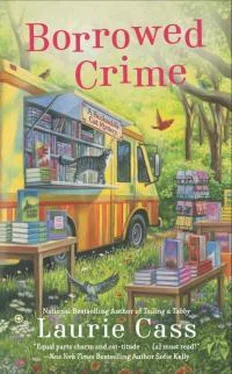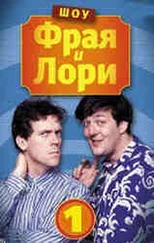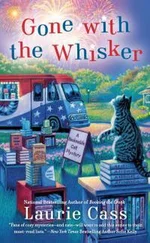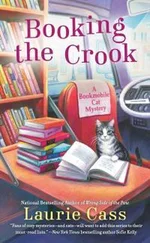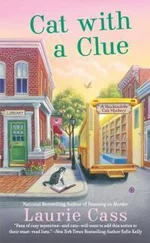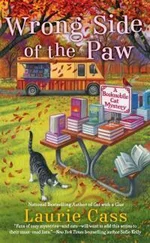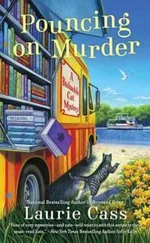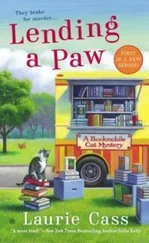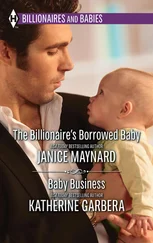“Not . . . library . . . thousand . . .”
“Cade? Are you there?”
Nothing. The line wasn’t just quiet—it was dead.
I returned the receiver to its cradle. So much for the library board being thrilled with my fund-raising efforts. They’d see the thousand-dollar check, pat me on the head (in so many words), and ask what I was going to do for them next month.
“Stop that,” I said out loud. As in, stop feeling sorry for myself. Stop acting as if there was nothing I could do to find Roger’s killer. Stop acting as if there was no way to save the bookmobile. Stop acting as if I was scared of the library board and the pending lawsuit. Stop acting if I was a helpless pawn in the game of life with no options and no way out.
What I needed to do was remember how much I’d accomplished and move on from there. I was smart, on good days, and resourceful almost always. I would figure this out. Whether I’d figure it out by next Wednesday was another question, of course, but I wasn’t going to worry about that now. Right now I was going to go home and eat whatever Aunt Frances was making for dinner.
I pulled on my coat, grabbed my backpack, and was about to shut down the computer for the weekend when my e-mail program dinged with an incoming message.
Read or don’t read; that was the question.
“Don’t read,” I said, and powered down. Whatever it was could wait until Monday.
* * *
Over a meal of fettuccini with various types of squash in some sort of olive oil–based sauce, I told Aunt Frances about my day, about how I’d fact-checked as many of my theories as I could, and about the conclusions I’d reached.
“First, I typed up reasons why Roger could have been the intended victim all along.”
“Mrr,” Eddie said. He was sitting in his new favorite spot: the seat of a rocking chair that had been moved into the corner of the kitchen from the screened back porch. You would have thought rocking chairs would be anathema to a creature with a long tail, but Eddie seemed to like it. “Mrr,” he said again.
“Yeah.” I nodded agreement. “It wasn’t a very long list.” My own list had been inspired by Mitchell’s lists of names, and maybe someday I’d tell him that. Probably not, but maybe.
My conclusion, arrived at after hours of typing, researching, and thinking, was that Roger was exactly who he appeared to be. A happy man, content with his place in life and comfortable in his own skin. Maybe he had made enemies at some point, but if he had, I hadn’t found any, and that’s a hard thing to hide when you’ve lived in the same small town your entire life.
I speared a piece of squash. “So, I went with the working assumption that Denise was the intended target.”
My aunt gave an unladylike snort. “Good luck. That one has done nothing but make enemies since she was a child.” She contemplated her fork. “I suppose I should feel sorry for her. Maybe she was born that way, maybe she can’t help having a personality like a hacksaw, but there are some people who make empathy hard.”
“Mrr,” Eddie said.
Aunt Frances and I looked at him. He looked back, blinked, then started licking his front paw.
“Anyway,” I said, turning my attention back to the topic at hand, “Denise has alienated half the town.”
“Is that all?” my aunt murmured.
“But alienation,” I went on, “does not necessarily an enemy make.”
Aunt Frances got a questioning look on her face. “So what makes an enemy an enemy?”
“Exactly!” I beamed. “That was the next phase of my research.”
“You researched enemy making?” She smirked. “What did you do, Google it? Bet that turned up some interesting links.”
“Mrr!” Eddie glared in her direction.
Aunt Frances laughed. “I don’t think he likes it when I make fun of you.”
“We have a bond.”
“Sorry, Eddie,” my aunt said.
Outwardly mollified, Eddie curled himself into a cat-sized ball, thereby withdrawing himself from our conversation.
“One conclusion of my research,” I said, “is that the result of irritating someone is most often a distancing effect.”
I could see a puzzled expression on my aunt’s face, so I knew I wasn’t making complete sense. It was all straight in my head, though. “Pam Fazio, for instance. Denise annoyed her to the point that she walked out on the Friends.”
“And said that she’d only return over Denise’s dead body,” Aunt Frances added.
I squirmed a little. “Yes, but that’s just something people say. And anyway, Pam was out of the state that day on a buying trip.” A fact I’d confirmed with one of her neighbors.
Aunt Frances nodded. “Okay, we can eliminate Pam. But what about the others you’ve talked about? That new council member, Allison. Plus Jeremy Hull, Don Weller, and Shannon Hirsch.”
“Jeremy.” I lined my mental ducks up in a row. “He holds a nasty grudge against Denise for leaving his organization in a tight spot and for almost getting him fired. Plus I saw his car out there the day Roger was killed. But I confirmed that he was checking the water levels at the Jurco Dam and the timing doesn’t work. The data sheets have an entry for time of day, and Jeremy’s job hangs on being accurate, so it doesn’t make sense that he did it.”
I’d done some checking up on Jeremy and had quickly found out that although his reputation for management wasn’t outstanding, he was reported to be a top-notch environmental scientist. And he was smart; if he’d wanted to kill Denise, he would have figured out a way that didn’t include falsifying data.
“What about Don Weller?” Aunt Frances asked. “Seems to me anyone who lived next door to Denise would end up wanting to kill her.”
I grinned. “You should have seen that video he made. Don wants revenge, all right, but he didn’t hate her enough to kill her.” And I had no doubt that someday he would get his revenge. Not for a year or two—he was a decent man and would wait until the shock of losing Roger had diminished—but someday he would gleefully turn her in for some minor infraction.
“Then who’s left?” My aunt thought back. “Allison Korthase. And Shannon Hirsch.”
Shannon’s sharp eyesight and honed shooting skills made it unlikely that she would have mistaken Roger for Denise, but what if I was wrong and Roger had been the target all along? Or maybe Shannon intended to kill both Slades, righting an old high-school wrong that had festered for years. I shivered at the thought.
“This afternoon,” I said, “I ran into Shannon, and she said her guns are at the gunsmith for maintenance. She said he was in Grayling, so I made a few calls and tracked him down. He’s had her guns for almost five weeks.”
For more than a month, Shannon’s guns had been out of her hands. Roger had died three weeks ago. Ergo, Shannon had not killed him. Okay, she could have borrowed a gun or purchased a new one, but I didn’t see it. Not for someone who’d just said the month without her guns had been the longest of her life. And that meant . . .
My aunt twirled a last bit of fettuccine onto her fork. “Have you talked to the police about this? You do realize that they’re trained investigators and are paid to do this kind of work.”
I picked at the remains of my dinner. One thing I hadn’t told Aunt Frances was that Ash Wolverson had asked me out on a date. The uncomfortable awkwardness between us would pass soon enough, but right now it was still, well, uncomfortable. And since Detective Inwood pushed the legwork of the investigation to Ash . . .
“I’ll call the detective on Monday,” I said. “Besides, I really don’t know anything, not for sure. All I have are guesses and theories.”
“But the killer doesn’t know that,” my aunt pointed out. “She or he is still out there. Denise could still be in danger.”
Читать дальше
